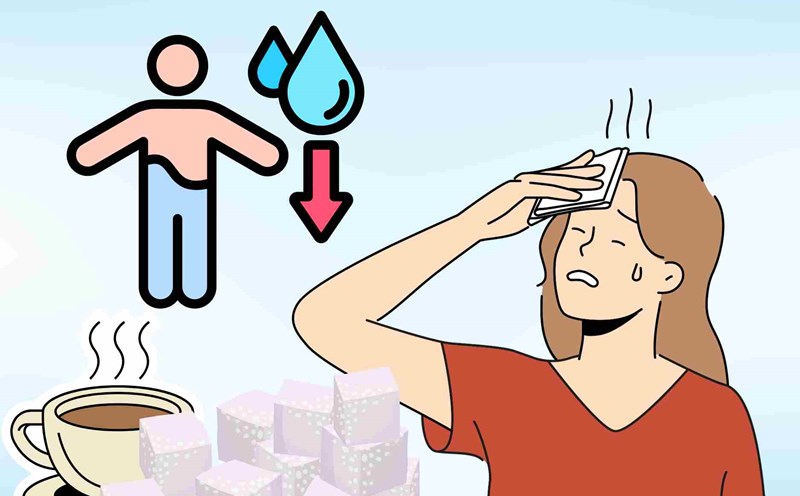Prolonged high temperatures, especially during extreme heat waves, can cause heat stroke - a condition in which the body cannot regulate body heat, leading to dangerous body heat gain. According to the Mayo Clinic, heatstroke that is not treated promptly can cause damage to the brain, kidneys and even death.
Early signs of heat stroke include dizziness, headache, nausea, rapid heartbeat and redness but no sweating. When these symptoms occur, take the patient to a cool place, take off clothes and cool the body with a wet towel or fan.
One of the effective ways to prevent this is to limit going out from 10am to 4pm - when the outside temperature is at its peak. If necessary, wear a wide-brimmed hat, wear light-colored, breathable clothes and apply sunscreen.
In addition, drinking enough water, about 22.5 liters per day, is a simple but very important way. Prioritize water, electrolyte or coconut water, avoid water containing caffeine or alcohol because they can easily cause dehydration.
People working outdoors need to rest periodically in the shade and always bring water with them. Children, the elderly and people with chronic diseases are the most susceptible to heat stroke, and need to be closely monitored during hot days.
According to experts, people should also pay attention to indoor temperatures. turn on the ventilation fan, close the curtains and use a properly air conditioner to help keep the temperature stable, avoid the phenomenon of "reverse heat shock" when going from the cool environment to the hot sun too quickly.











